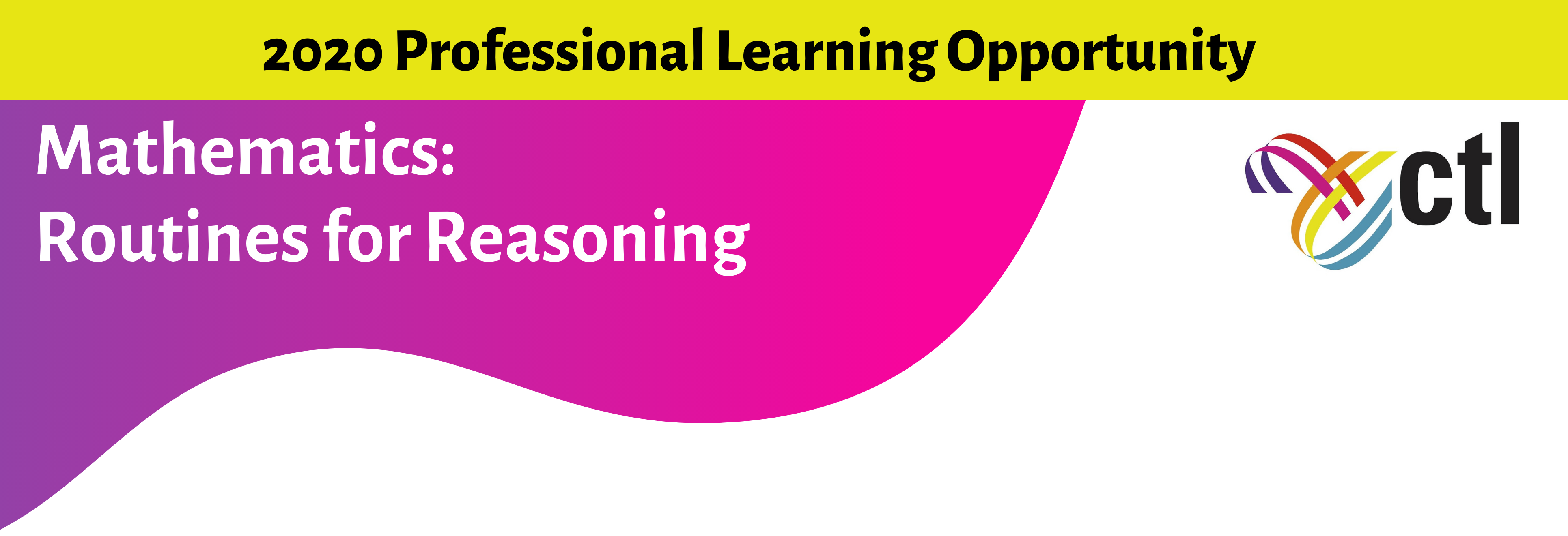
In this extended workshop, middle and high school mathematics teachers will learn specific routines that promote student reasoning and thinking skills. The routines are designed with a foundational set of core practices, making it easier for students to learn the routines, while supporting different types of thinking and engagement with content. The routines are introduced to students in a progression with one routine intentionally used until students “own” the thinking skills supported by the routine. Successive routines will be introduced and implemented on a continuum. A team of at least two teachers from the same school is encouraged. Individual or small group coaching will be offered.
To support learning and implementation of the routines, each teacher will receive a copy of the book, Routines for Reasoning. Application of the learning will result in individual plans for implementing the routines along with specific modifications to their first unit introducing a beginning routine.
Workshop participants will:
Explore…a series of reasoning routines that support students’ development of the Standards for Mathematical Practice.
Plan…the order in which routines will be explicitly taught and how students will be supported in applying the routines as they learn math content.
Engage…in experiences to learn the routines, instructional scenarios to apply the routines, and reflective conversations to inform implementation.
Discover…how committing time to teaching and applying these routines can support students’ ability to think mathematically and build understanding of content.
Virtual Session Schedule
Workshop schedule (All times are Eastern):
Virtual Collaborative Session #1 June 11, 2020 11:00-12:30 EST Assignment #1
Virtual Collaborative Session #2 June 18, 2020 11:00-12:30 EST Assignment #2
Virtual Collaborative Session #3 June 25, 2020 11:00-12:30 EST Assignment #3
Why attend? These routines provide a means for implementing the Standards for Mathematical Practice so that teachers can focus on effective planning and application of the routines.
Participants limited to: 15 or
(12 teams of multiple participants)
